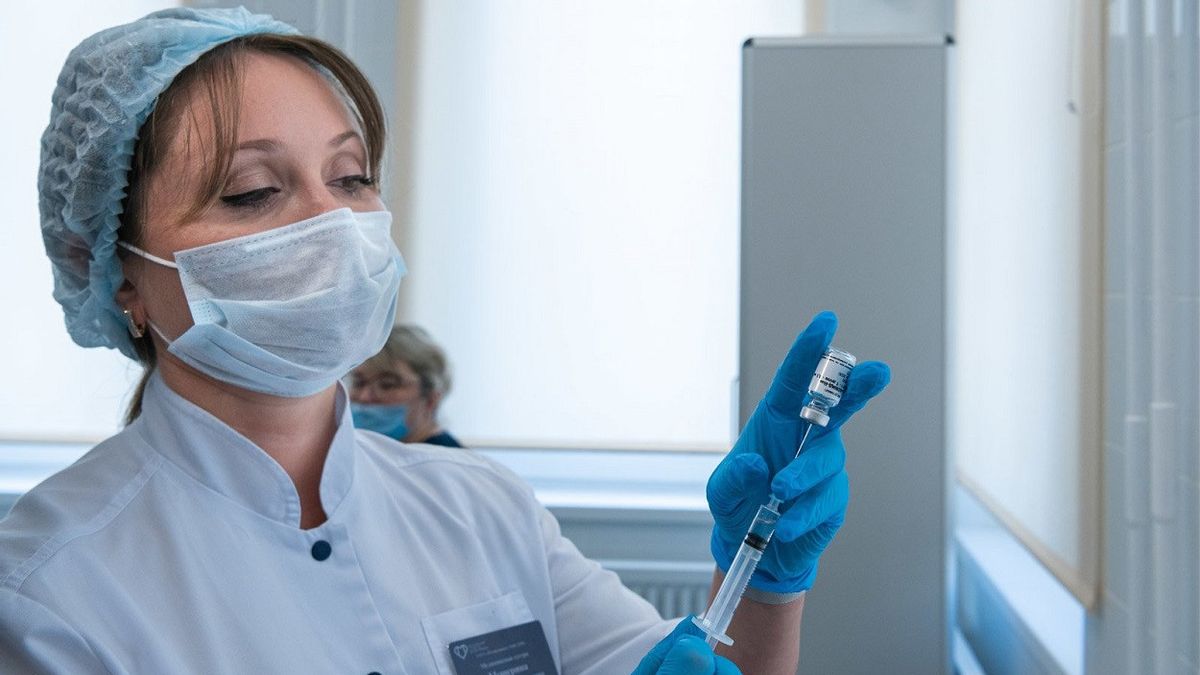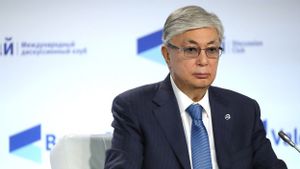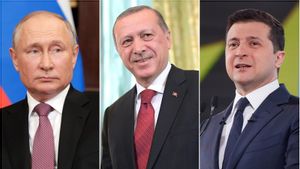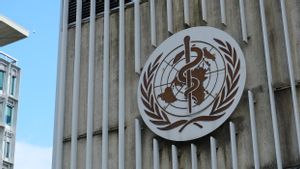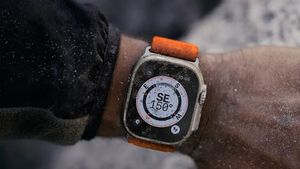JAKARTA - An initial laboratory study has shown Russia's Sputnik V vaccine is more effective against the Omicron variant of the coronavirus, compared to Pfizer.
In the initial study, the levels of Omicron neutralizing antibodies in people vaccinated with Russia's Sputnik V vaccine did not decrease as much as in those who received the Pfizer vaccine.
Funded by the Russian Direct Investment Fund, this joint Russia and Italy study compared the blood serum of people who had received different vaccines.
The preliminary study was carried out directly by scientists from the Spallanzani Institute in Italy and the Gamaleya Institute in Moscow, the developers of the Sputnik V vaccine.
The researchers said samples taken three to six months after the second dose of the vaccine showed antibody levels in recipients of two doses of Sputnik V were more resistant to Omicron than those vaccinated with Pfizer.
The study included the blood serum of 51 people vaccinated with Sputnik V and 17 people who had received two doses of Pfizer vaccine.
"Today the need for a third booster vaccination is clear," said the preliminary study published on Jan. 19, citing Reuters January 21.

The study, which will require peer-reviewed certification, showed Omicron-specific neutralizing antibodies were detected in the blood serum of 74.2 percent of people vaccinated with Sputnik V, compared to 56.9 percent of those vaccinated with Pfizer/BioNtech.
An earlier preliminary study by the Gamaleya Institute, the developer of Sputnik V, showed an injection of the Sputnik Light vaccine provided a stronger antibody response to Omicron than the two-dose Sputnik V vaccine alone.
"Partnerships of different platforms are key. The booster dose with Sputnik Light will help strengthen the efficacy of other vaccines in light of the combined challenges of Delta and Omicron," said RDIF head Kirill Dmitriev in a statement.
While citing Sputnik News, in a study conducted in an Italian laboratory found, Sputnik V had 2.1 times more neutralizing antibodies against the Omicron variant in general, and 2.6 times more antibodies three months after vaccination.
When it came to an in-depth analysis of the protective mechanisms, the researchers noted that Sputnik V neutralized the Omicron variant because it formed a stronger immune response, due to its high antibody levels.
When reviewing baseline levels of RBD-specific IgG (immunoglobulin G) antibody (receptor-binding domain), researchers showed that in the top 25 percent of samples with the highest IgG levels, 100 percent of individuals vaccinated with Sputnik V had these antibodies, compared with 83.3 percent in Pfizer group. In total 74.2 percent of Sputnik V blood serum samples were successful in neutralizing the Omicron strain compared to 56.9 percent for Pfizer.

There are several factors that cause Sputnik V to develop such a strong response to Omicron, such as producing a much wider spectrum of neutralizing antibodies, while the Pfizer vaccine uses S protein in the stable form of proline aimed at a specific part of the antigen molecule which, in the case of Omicron, normally changes form by viral mutations.
Sputnik V's primary heterologous enhancement technology also plays a role, with the Russian vaccine using two different carrier adenovirus vectors, with the human adenoviral vector platform itself having the added advantage of being a better clone of infection. The publication Spallanzani-Gamaleya MedRxiv cites this approach as the most effective.
SEE ALSO:
Sputnik V has been approved for use in 71 countries with a total population of 4 billion people, with Australia being the latest country to recognize a Russian vaccine. Meanwhile, Sputnik Light has been legalized in 30 countries. Both jabs have been developed using renowned 30-year-old adenovirus vector technology and have a proven track record of safety and efficacy.
Please note, unlike competing technologies, the adenoviral viral platform has not been associated with serious side effects, such as pericarditis or myocarditis. Another major advantage of the Sputnik V is that it can be stored at temperatures from +2 to +8 Celsius, which facilitates batch shipping and storage, while some competing vaccines require special ultra-low temperature freezers.
The English, Chinese, Japanese, Arabic, and French versions are automatically generated by the AI. So there may still be inaccuracies in translating, please always see Indonesian as our main language. (system supported by DigitalSiber.id)
